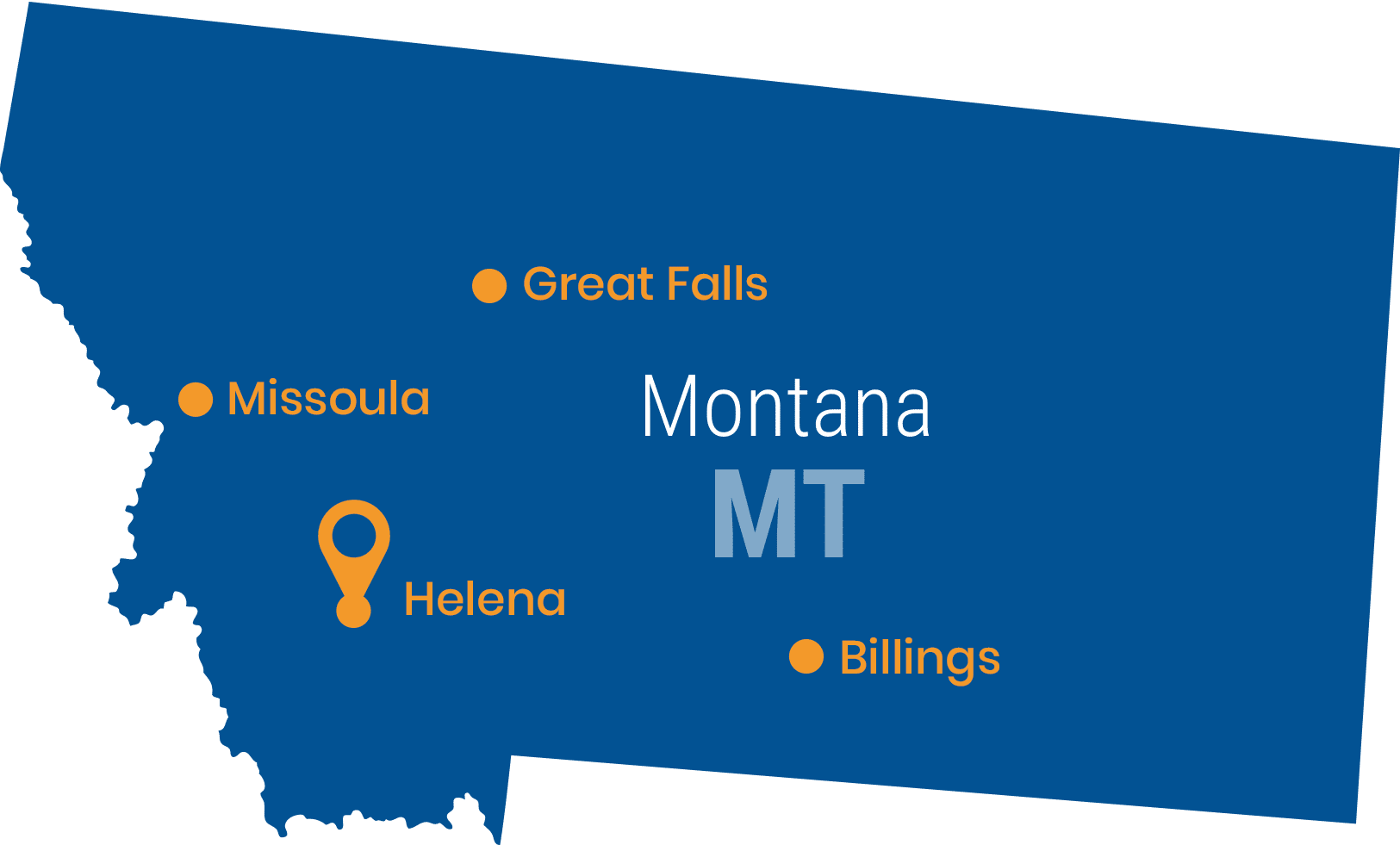What is Finance?
Montana is well known for its scenic landscapes, outdoor recreation opportunities and small-town charm; but Montana also has an active financial sector which contributes to its economy. According to the Bureau of Labor Statistics (BLS), there were 6,560 people employed in the finance and insurance industry in Montana as of May 2020. This represents 1.5% of the state's total non-farm employment, which is slightly lower than the national average of 1.9%.
The finance and insurance industry includes a variety of occupations such as financial analysts, loan officers, insurance agents, and financial managers. In Montana, the largest sub-industry within finance and insurance is credit intermediation and related activities, which employs 2,360 people. This is followed by insurance carriers and related activities, which employs 1,900 people.
Finance professionals play a crucial role in the success of businesses, managing financial operations, and ensuring that financial resources are allocated efficiently. They are responsible for analyzing financial data, creating financial reports, forecasting and budgeting, managing investments, handling financial risks, and providing strategic financial advice.
Finance professionals may fill a range of roles including accountant, financial analyst, budget analyst, investment banker, financial advisor, or treasurer. Each position comes with its own set of responsibilities and requires distinct skills and qualifications to fulfill effectively. Aspiring finance professionals need strong analytical abilities, attention to detail, and mathematical prowess. Furthermore, an understanding of economics, accounting principles, financial regulations, and management techniques, as well as good communication and interpersonal skills, is necessary in this profession. Finance professionals need to be able to explain complex financial concepts to both financial and non-financial personnel.
Overall, becoming a finance professional requires dedication, hard work, and a passion for finance. But with the right education and training, you can build a rewarding career in this dynamic field and play a key role in ensuring the financial success of businesses.

Featured Online Programs
Online Finance Education in Montana
The average annual wage for finance and insurance employees in Montana is $60,510, which is slightly lower than the national average of $72,230. However, some occupations within the industry earn higher salaries than others. For example, financial managers in Montana earn an average of $120,530 per year, while personal financial advisors earn an average of $56,080 per year.
Montana's finance industry is concentrated in certain areas. According to the Montana Department of Labor and Industry statistics, most of Montana's major finance employers can be found in Billings, Bozeman, Helena, and Missoula. Overall, the finance industry in Montana may not be as large as it is in other states, but it still plays an important role in the state's economy. Whether you're interested in becoming a financial analyst, loan officer, insurance agent, or finding another financial role, there are opportunities to pursue a career in finance in Montana.
Students interested in completing finance majors in Montana will have some options within the state when it comes to an associate or bachelor's degree program offering finance courses, though there may be less than other states with larger populations. You may choose to attend Mt Carroll College, Montana State University, the University of Montana, and others. Or you could head out of state using the Western Undergraduate Exchange program and find a college or university offering the accounting, international finance, or general finance curriculum that's right for you.
Online Associate (AS)

Associate finance degree programs are a two-year program that provides students with foundational knowledge and skills in financial management. These degree programs are ideal for individuals who wish to pursue a career in finance but do not have the time or resources to obtain a four-year degree. The coursework typically covers topics such as accounting, economics, financial analysis, and investment management. However, it’s good to note that, those who want to move into management or other upper-level positions, will need to earn more education at some point in their careers.
Graduates of an associate degree program in finance can find employment opportunities in various industries including banking, insurance, and real estate. Some common job titles include loan officer, credit analyst, and personal banker. Additionally, graduates may also choose to transfer their credits to a four-year institution to complete a bachelor's degree in finance or a related field.
Overall, an associate degree in finance provides students with the necessary skills and knowledge to enter the workforce or continue their education. However, it’s important for potential students to research different schools and programs before committing to ensure that they are receiving quality education from accredited institutions. Additionally, internships or work experience can provide valuable hands-on training and networking opportunities for future success in the field of finance.
Online Bachelors (BS)

Earning a bachelor's degree in finance can prepare students for various career opportunities in the financial industry including roles in banking, investment management, and more. Finance colleges offer degree programs that provide students with a comprehensive understanding of financial theories and practices. The curriculum usually includes courses on accounting principles, financial analysis, investment management, financial management, risk assessment and management, economics, business law, and ethics.
In addition to classroom learning, many finance programs also require internships or capstone projects that allow students to gain practical experience in the field. Some universities also have partnerships with companies in the financial industry for job placement opportunities after graduation. Pursuing a bachelor's degree in finance can set graduates on a path toward attaining professional certifications, such as Chartered Financial Analyst (CFA) or Certified Financial Planner (CFP), which are highly valued credentials in the industry.
Find Your Online Finance Program
Online Masters (MS)

A master's degree with a finance major is an excellent educational opportunity for individuals interested in pursuing a career in finance. Many top colleges and universities offer specialized finance programs, providing students with the necessary skills, knowledge, and experience to succeed in the field. Students can expect to learn about financial analysis, investment management, financial management, financial markets and institutions, accounting principles, risk management strategies, and more.
Graduates of a master's program in finance are well positioned to pursue careers as financial analysts, investment bankers or portfolio managers. The demand for professionals with advanced-level qualifications continues to grow within the industry. Graduates may also choose to work within government agencies or consultancies that specialize in business strategy or finance management.
It’s important to note that many employers require candidates applying for senior-level roles within financial organizations hold advanced degrees, such as a master's finance. Selecting an accredited college program with experienced faculty members and strong alumni connections can provide students with valuable networking opportunities upon graduation.
Online Doctorate (PhD)
Pursuing a PhD in finance can be a challenging but rewarding experience. It requires a strong foundation in financial theory and analytical skills to conduct original research in the field. Many top universities offer doctoral programs in finance, including Ivy League schools such as Harvard and Yale, as well as renowned business schools like Stanford and Wharton.
To be admitted into a PhD program in finance, candidates must typically hold an undergraduate degree with a high GPA and demonstrate proficiency in mathematics, statistics, economics, and accounting. A master's degree is often preferred but not required. These programs usually take four to five years to complete and involve coursework, comprehensive exams, teaching assistantships or research assistantships, and dissertation research.
Earning a PhD in finance can lead to numerous career opportunities such as becoming a professor at a university or working for government agencies or think tanks conducting economic research. Additionally, it can also open doors to careers within the private sector, such as investment banking or corporate finance positions that require advanced quantitative skills. Overall, obtaining a PhD in finance provides individuals with the knowledge and expertise necessary for successful careers within the financial industry, though financial management roles rarely require a PhD.
Online Certifications
Finance certifications can be a valuable addition to the education and experience of individuals pursuing careers in finance. Many colleges and universities offer specific courses or degree programs that prepare students for various finance certifications such as the Chartered Financial Analyst (CFA), Certified Public Accountant (CPA), or Certified Financial Planner (CFP) designations.
CFA certification is widely regarded as one of the most rigorous in finance, requiring candidates to pass three levels of exams covering topics, such as investment analysis and portfolio management. The CPA designation, on the other hand, is specific to accounting and requires candidates to pass an exam covering financial accounting and reporting, auditing and attestation, regulation, and business environment and concepts.
Students interested in wealth management may consider pursuing a CFP certification, which covers topics such as retirement planning, estate planning, tax planning, investment strategies, and risk management. Earning these certifications not only enhances one's knowledge but also increases marketability in the job market by demonstrating expertise in a particular area within finance.
Become a Finance Professional in Montana
Montana offers plenty of opportunities for anyone interested in finance to build a career here. Montana boasts numerous growing industries and businesses that require finance expertise, and here are some steps you can take towards becoming a financial analyst or becoming a financial advisor.
-
Step 1: Earn a Degree in Finance or Accounting
An undergraduate or graduate degree in finance or accounting provides essential foundational knowledge for a career in finance or accounting. Many colleges and universities offer programs in these disciplines both on undergraduate and graduate levels. However, it's essential that you research schools carefully to find programs which align with your goals and aspirations.
-
Step 2: Gain Work Experience in Finance
To become a finance professional, relevant work experience is needed. Entry-level positions within finance include financial analyst, accountant, and planner; these allow individuals to put the knowledge gained at school into real world applications while developing key skills that will serve them in future finance jobs.
Find Online Finance Programs
-
Step 3: Get Certified
Certification can be an excellent way to demonstrate your expertise in specific areas of finance. Certifications like Certified Financial Planner (CFP) and Chartered Financial Analyst (CFA) are widely respected among employers. However, you should research which certifications best align with your career goals before taking steps toward their acquisition.
-
Step 4: Network within the Finance Industry
Networking is essential in many fields, and finance is no exception. You can attend industry events, join professional organizations, and connect with finance professionals via social media; building relationships can open doors to job opportunities as well as provide invaluable advice from your peers in the industry.
What Can I Do with a Bachelor's in Finance?
A bachelor's degree in finance can provide access to many career paths for graduates. One of the most popular options is to pursue a job in banking or finance where you can work as financial analysts, investment bankers, or wealth managers. These roles require a deep understanding of markets, investments, and financial strategies.
Another option for those with a bachelor's in this field is to work within the accounting industry. Graduates may choose to become accountants, auditors, or tax specialists who help individuals and businesses manage their finances and prepare their taxes. Careers in corporate finance are also an option for graduates with this degree, such as financial planning and analysis positions.
Finally, graduates may consider pursuing further education, such as an MBA program, which can lead to higher-level management positions within various industries. A bachelor's in finance provides a solid foundation that prepares students for numerous career paths and opportunities within the business world.
Potential Careers for Finance Graduates
- Financial Planner:
A financial planner is responsible for providing financial planning and investment advisory services to clients. This role involves analyzing clients' financial situations, creating customized financial plans, and recommending investment strategies to help clients achieve their financial goals.
Necessary Requirements:
- Bachelor's degree in finance, economics, or related field
- Certified Financial Planner (CFP) designation preferred
- Strong analytical skills and attention to detail
- Prior experience working as a personal financial advisor
- Excellent communication and interpersonal skills
- Ability to work independently and manage multiple clients simultaneously
- Knowledge of financial planning software and tools
Estimated Salary
- The median annual wage for personal financial advisors in the US in 2021 was $94,170
- The mean annual wage for personal financial advisors in Montana is $146,800
- Accountant:
An accountant is accountable for overseeing financial records and transactions for an organization such as maintaining accurate financial statements, filing tax returns, and overseeing budgets.
Necessary Requirements:
- Bachelor's degree in accounting or a related field
- Certified Public Accountant (CPA) preferred
- Strong attention to detail and accuracy
- Excellent communication skills
- Proficient in accounting software and Microsoft Office Suite
- Knowledge of tax laws and regulations
- Ability to work independently and as part of a team
Estimated Salary
- The median annual wage for accountants and auditors in the US in 2021 was $77,250
- The mean annual wage for accountants and auditors in Montana is $73,810
- Investment Banker:
An investment banker is a financial professional who advises and guides their clients through financial transactions such as mergers and acquisitions, capital raising, and underwriting.
Necessary Requirements:
- Bachelor's degree in Finance, Accounting, Economics or related field
- Strong analytical skills with experience in financial modeling
- Excellent communication and interpersonal skills
- Ability to work under pressure and meet deadlines
- Knowledge of relevant regulations and compliance requirements in the investment banking industry
- Previous experience in investment banking or related field is preferred
Estimated Salary
- The median annual wage for securities, commodities, and financial services sales agents in the US in 2021 was $62,910
- The mean annual wage for securities, commodities, and financial services sales agents in Montana is $77,480
- Personal Financial Advisor
A personal financial advisor is responsible for providing financial planning, investment advice, and other financial services to clients. They work with individuals to help them achieve their financial goals and manage their wealth.
Necessary Requirements:
- Bachelor's degree in finance, business, economics or related field
- Professional certification such as Certified Financial Planner (CFP), Chartered Financial Analyst (CFA), or similar
- Strong analytical skills and attention to detail
- Excellent communication and interpersonal skills
- Ability to build trust and rapport with clients
- Knowledge of financial markets, investment products, and tax regulations
Estimated Salary
- The median annual wage for personal financial advisors in the US in 2021 was $94,170
- The mean annual wage for personal financial advisors in Montana is $146,800
- Tax Examiner and Collector, and Revenue Agent:
Tax examiners and collectors, as well as revenue agents, are responsible for ensuring that businesses and individuals abide by tax laws and regulations. They review tax returns, conduct audits, and collect unpaid taxes due to the government.
Necessary Requirements:
- Bachelor's degree in accounting, finance, or a related field
- Strong attention to detail and analytical skills
- Knowledge of tax laws and regulations
- Excellent communication and interpersonal skills
- Ability to work independently and as part of a team
- Proficiency in computer applications such as spreadsheets, databases, and accounting software
Estimated Salary
- The median annual wage for tax examiners and collectors, and revenue agents in the US in 2021 was $56,780
- The mean annual wage for tax examiners and collectors, and revenue agents in Montana is $64,100
- Chief Executive:
A chief executive is responsible for leading the overall direction and management of the organization. They work closely with a Board of Directors to develop and execute strategic plans and achieve organizational goals. They may also serve as the public face of the organization, representing it to stakeholders, partners, and the public.
Necessary Requirements:
- Bachelor's degree in business administration, management, or related field
- Proven experience as a CEO or in a similar executive leadership role
- Strong communication, interpersonal, and negotiation skills
- Knowledge of business operations, financial management, and strategic planning
- Ability to lead teams and inspire collaboration among staff members
Estimated Salary
- The median annual wage for chief executives in the US in 2021 was $246,440
- No available median annual wage for chief executives in Montana, though general and operations managers earn $96,960
- Budget Analyst:
Budget analysts are responsible for analyzing financial data and creating budget reports for an organization. Working alongside various departments, they collaborate to ensure accurate financial information is delivered while offering advice regarding budget adjustments.
Necessary Requirements:
- Bachelor's degree in finance, accounting, or related field
- Strong analytical skills and attention to detail
- Proficient in Microsoft Excel and other financial software
- Excellent communication skills, both written and verbal
- Ability to work independently and manage multiple projects simultaneously
Estimated Salary
- The median annual wage for budget analysts in the US in 2021 was $79,940
- The mean annual wage for budget analysts in Montana is $65,660
- Auditor:
An auditor is charged with reviewing financial statements, records, and documentation to ensure compliance with legal requirements and company policies. Furthermore, auditors assess financial risks and suggest improvements for accounting processes.
Necessary Requirements:
- Bachelor's degree in accounting, finance, or related field
- Professional certification (e.g., CPA, CIA)
- Experience in auditing or accounting
- Knowledge of auditing standards and practices
- Strong analytical and problem-solving skills
- Excellent communication and interpersonal skills
Estimated Salary
- The median annual wage for accountants and auditors in the US in 2021 was $77,250
- The mean annual wage for accountants and auditors in Montana is $73,810
